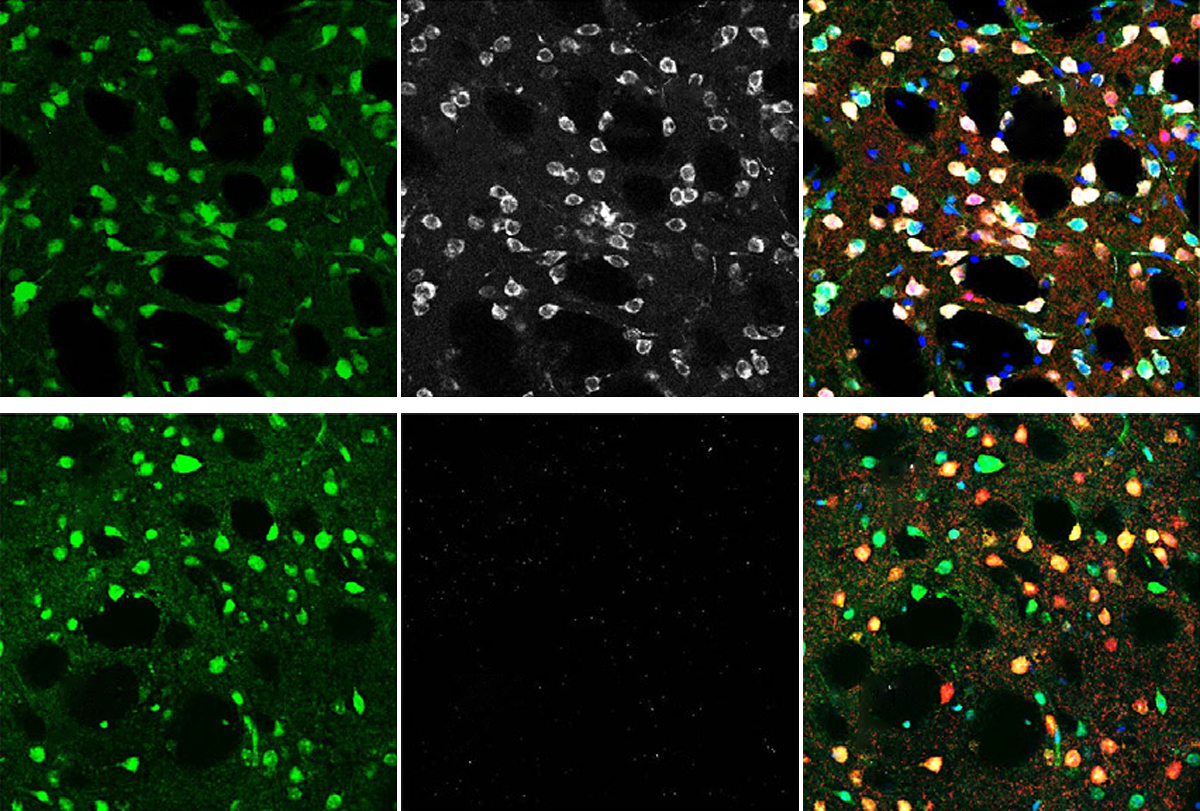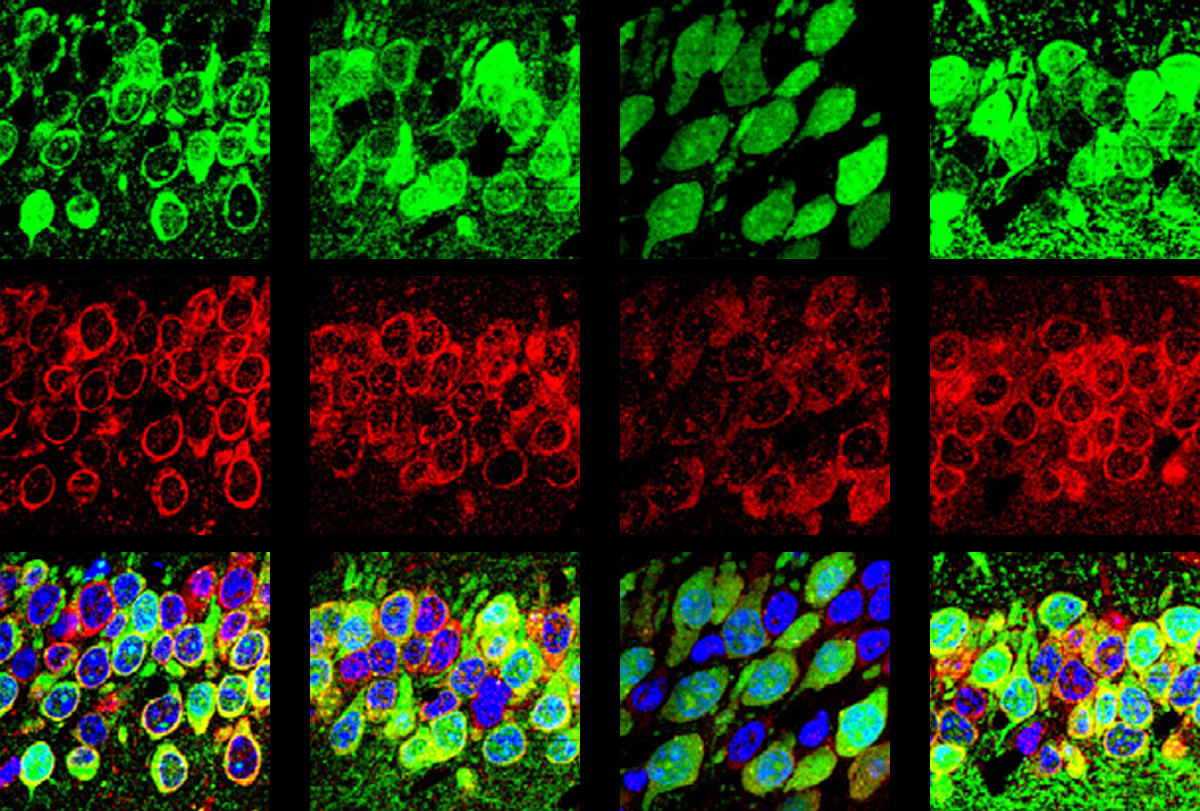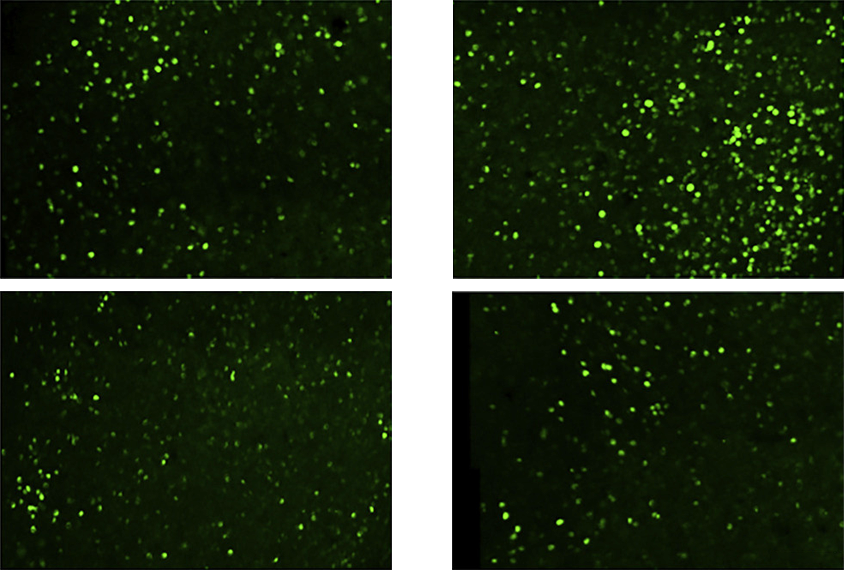Repetitive behaviors
Recent articles
Vasopressin boosts sociability in solitary monkeys
Inhaling the hormone did not increase aggression in unsociable rhesus macaques and appears to help the animals remember faces and reciprocate friendly behaviors.

Vasopressin boosts sociability in solitary monkeys
Inhaling the hormone did not increase aggression in unsociable rhesus macaques and appears to help the animals remember faces and reciprocate friendly behaviors.
Understanding fragile X syndrome
Just in time for Fragile X Awareness Month, The Transmitter rounds up notable coverage.

Understanding fragile X syndrome
Just in time for Fragile X Awareness Month, The Transmitter rounds up notable coverage.
Teasing apart insistence on sameness with Mirko Uljarević
The hallmark autism trait has multiple facets, Uljarević and his colleagues have found.

Teasing apart insistence on sameness with Mirko Uljarević
The hallmark autism trait has multiple facets, Uljarević and his colleagues have found.
Brian Boyd, classroom-based interventions and the importance of representation
The leader of the Frank Porter Graham Child Development Institute talks about what drew him into the autism field, and his departure from — and return to — the University of North Carolina at Chapel Hill.

Brian Boyd, classroom-based interventions and the importance of representation
The leader of the Frank Porter Graham Child Development Institute talks about what drew him into the autism field, and his departure from — and return to — the University of North Carolina at Chapel Hill.
Mental health issues emerge with shifts in autism traits across childhood
Anxiety and other challenges autistic children experience may stem from an increase in social-communication issues and a decrease in repetitive behaviors from ages 6 to 11.

Mental health issues emerge with shifts in autism traits across childhood
Anxiety and other challenges autistic children experience may stem from an increase in social-communication issues and a decrease in repetitive behaviors from ages 6 to 11.
Skewed signaling in striatum may spawn repetitive behaviors
Synaptic changes in the brain region could drive a core trait of fragile X syndrome, a new mouse study suggests.

Skewed signaling in striatum may spawn repetitive behaviors
Synaptic changes in the brain region could drive a core trait of fragile X syndrome, a new mouse study suggests.
Neuronal deafness to stress may add to protein surplus in fragile X
A protective pathway that pauses protein synthesis is muted in a mouse model of fragile X syndrome, according to a new study.

Neuronal deafness to stress may add to protein surplus in fragile X
A protective pathway that pauses protein synthesis is muted in a mouse model of fragile X syndrome, according to a new study.
Father’s genes may drive sociability in male monkeys
The findings in rhesus macaque monkeys may provide clues to sex differences in the heredity of social behavior in people.

Father’s genes may drive sociability in male monkeys
The findings in rhesus macaque monkeys may provide clues to sex differences in the heredity of social behavior in people.
Missing mechanism helps solve fragile X protein mystery
Cells from people with fragile X syndrome overproduce — but don’t accumulate — proteins. New work suggests that excessive protein breakdown may account for this discrepancy, and explain some of the syndrome’s traits.

Missing mechanism helps solve fragile X protein mystery
Cells from people with fragile X syndrome overproduce — but don’t accumulate — proteins. New work suggests that excessive protein breakdown may account for this discrepancy, and explain some of the syndrome’s traits.
New tool aims to capture full breadth of repetitive behaviors
The measure breaks the behaviors down into eight distinct subdomains — categorization that could prove useful for clinical trials, its creator says.

New tool aims to capture full breadth of repetitive behaviors
The measure breaks the behaviors down into eight distinct subdomains — categorization that could prove useful for clinical trials, its creator says.
Explore more from The Transmitter
Shifting neural code powers speech comprehension
Dynamic coding helps explain how the brain processes multiple features of speech—from the smallest units of sounds to full sentences—simultaneously.

Shifting neural code powers speech comprehension
Dynamic coding helps explain how the brain processes multiple features of speech—from the smallest units of sounds to full sentences—simultaneously.
Astrocytes orchestrate oxytocin’s social effects in mice
The cells amplify oxytocin—and may be responsible for sex differences in social behavior, two preprints find.

Astrocytes orchestrate oxytocin’s social effects in mice
The cells amplify oxytocin—and may be responsible for sex differences in social behavior, two preprints find.
Neuro’s ark: Spying on the secret sensory world of ticks
Carola Städele, a self-proclaimed “tick magnet,” studies the arachnids’ sensory neurobiology—in other words, how these tiny parasites zero in on their next meal.

Neuro’s ark: Spying on the secret sensory world of ticks
Carola Städele, a self-proclaimed “tick magnet,” studies the arachnids’ sensory neurobiology—in other words, how these tiny parasites zero in on their next meal.